Prospectus
The Fukuoka EU Association was established on June 14, 2002, with the goal of deepening mutual understanding between Fukuoka prefecture and the European Union (EU). By promoting friendship between the two parties, the Association aims to contribute to exchanges in various areas, including economy and culture. The association is made up of a multitude of individual and corporate members. The major activities of the association are as follows:
- Deepening mutual understanding, through activities such as holding lectures and seminars
- Promoting human and cultural exchange, including exchange of visits by delegations
- Mutual exchange of information on the EU and Fukuoka
- Other activities necessary to achieve the objectives described in the preceding articles
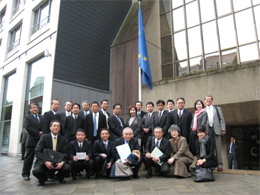
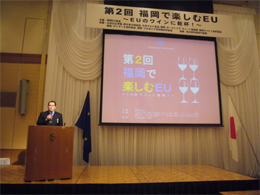
“Enjoying the EU in Fukuoka”
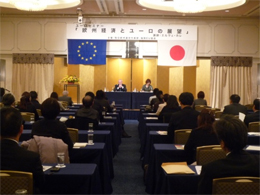
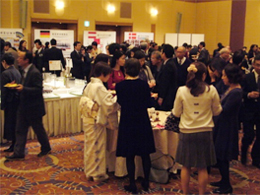
“Enjoying the EU in Fukuoka”
Outline
| Name | Fukuoka EU Association |
| Establishment | June 14, 2002 |
| Members (as of May 2020) | 67 individual members 64 corporate members 18 honorary members |
What is the European Union (EU)?
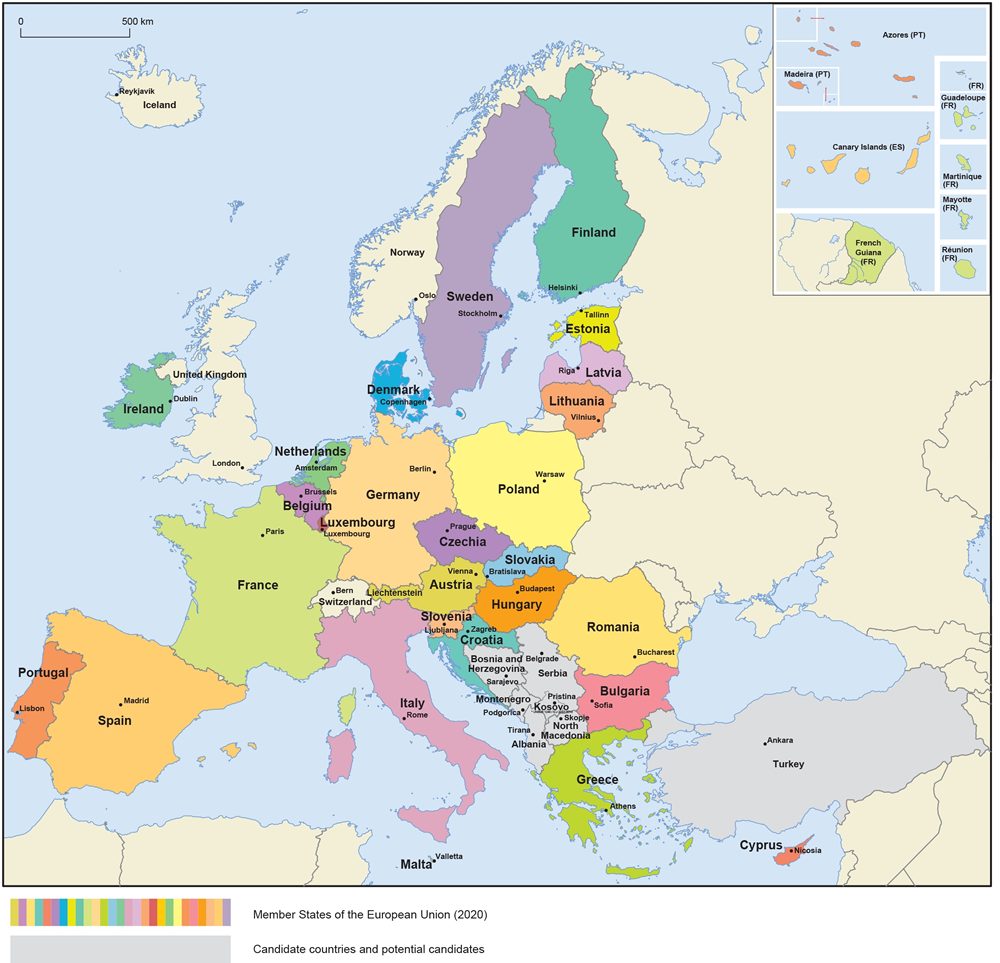
The European Union comprises 27 Member States, united in an effort to safeguard peace and promote economic and social progress, and incorporates three linked Communities. The Coal and Steel Community was the first to be set up (by the Treaty of Paris, 1951), followed by an Economic Community and an Atomic Energy Community (Treaties of Rome, 1957). Under the Single European Act (1986), the Communities finally dismantled all internal borders to establish a single market. The Treaty on European Union, signed in Maastricht in 1992, created a European Union combining a Community moving towards economic and monetary union with intergovernmental cooperation in certain areas. During the 1990s it became increasingly easy for people to move around in Europe, as passport and customs checks were abolished at most of the EU’s internal borders. One consequence is greater mobility for EU citizens. A common currency, the euro, was adopted by 12 Member States on 1 January, 2002. Slovenia became the 13th member of the eurozone on 1 January, 2007, Cyprus and Malta the 14th and 15th on 2008, Slovakia in 2009, and Estonia adopted the euro on 1January 2011.
The Union is managed by the following institutions: a democratically elected Parliament, a Council representing the Member States and composed of government ministers, a European Council of Heads of State or Government, a Commission which acts as guardian of the Treaties and has the power to initiate and implement legislation, a Court of justice which ensures that Community law is observed and a Court of Auditors which monitors the financial management of the Union. In addition, there are a number of advisory bodies, which represent economic, social and regional interests. The European Investment Bank was set up to facilitate the financing of projects, which contribute to the balanced development of the Union.
(Source: The Delegation of the European Union to Japan)
Member States
Member States of the European Union;
Belgium, Bulgaria, Czech Republic, Denmark, Germany, Estonia, Greece, Spain, France, Ireland, Italy, Cyprus, Latvia, Lithuania, Luxembourg, Malta, Hungary, Netherlands, Austria, Poland, Portugal, Romania, Slovak Republic, Slovenia, Finland, Sweden, Croatia
As of February, 2020
Delegation of the European Union to Japan
The Delegation of the European Union to Japan is one of 130 external delegations of the European Union and it represents the European Union in Japan. The Delegation enjoys the full status of a diplomatic mission in the sense of the Convention of Vienna of 18 April 1961 on diplomatic relations and is represented by the Head of Delegation.
Please have a look at the Delegation of the European Union to Japan website, which has more detailed information on various EU topics.
https://eeas.europa.eu/delegations/japan_ja
Directors and Offices
Directors
| President | Tatsuro Ishibashi, President of Kyushu University |
| Vice-President | Michiaki Uriu , Representative Director and Chairman of Kyushu Electric Power Co.,inc Junji Tsuda , Representative Director Chairman of Yaskawa Electric Corporation Kenichi Fujinaga , President of Fukuoka International Exchange Foundation |
| Senior Executive Advisor | Seitaro Hattori, Governor of Fukuoka Prefecture Patricia Flor , Head of the Delegation of the European Union to Japan |
| Advisor | Wataru Aso, President of Fukuoka Airport Building Co., Ltd. Kenji Kitahashi, Mayor of Kitakyushu City Soichiro Takashima, Mayor of Fukuoka City |
Offices
| Address | Planning and Exchange section Fukuoka International Exchange Foundation ACROS Fukuoka 8F 1-1-1 Tenjin, Chuo-ku, Fukuoka, 810-0001, Japan |
| Tel | +81 (0)92-725-9204 |
| Fax | +81 (0)92-725-9205 |
| Hours | 8:30 am – 5:45 pm (Closed December 29 to January 3.) |
| Address | General Affairs, District Symbiosis Division, Kyushu Electric Power Co.,Inc. 2-1-82, Watanabe Dori, Chuo-ku, Fukuoka, 810-8720, Japan |
| Tel | +81 (0)92-726-1591 |
| Fax | +81 (0)92-726-1654 |
